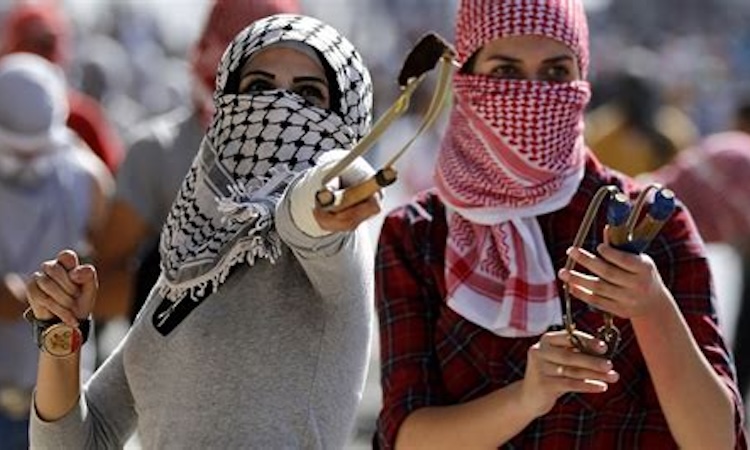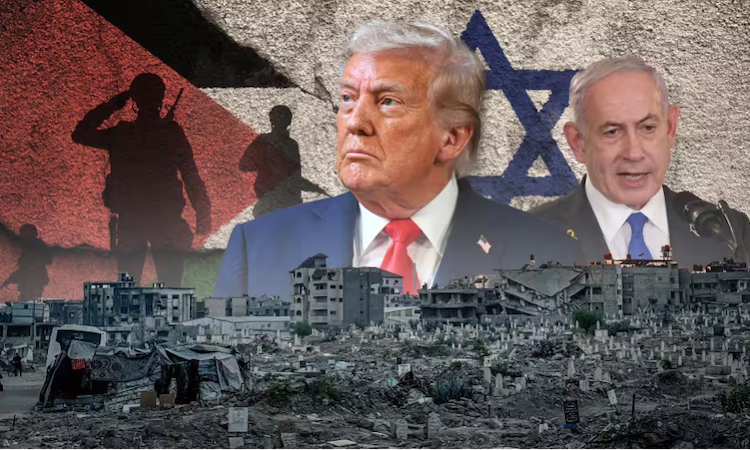This article is reproduced from Palestine Action, with thanks.
*****
In Bradford crown court, a two-week trial has ended against four activists, with the jury on 13 September 2024 refusing to convict them of charges of criminal damage after they shut down an Israel-supplying military electronics firm in April 2024. The jury had been out for deliberations since 2.30pm on 11 September, after the trial commenced on 3 September.
The ‘Shipley 4’ occupied the premises of Teledyne Defence and Space, at Airedale House, Shipley, for over 14 hours on 2 April 2024, six months into Israel’s genocide in Gaza, to prevent its manufacture of weapons parts used for war crimes. For the duration of the occupation, activists used sledgehammers to break apart the site – smashing the roof, windows and the interior premises – resulting in alleged damages of £571,383. This damage was purposeful; intended to halt Teledyne Shipley’s manufacture of missile parts for Israel’s war machine. Following their arrest, one of the four activists was remanded in prison for one month and another was remanded for three months.
While one of the four self-represented throughout the trial, the other three opted to dismiss their counsel following the conclusion of evidence – and the judge’s decision to deny them all of their defences. While making closing speeches, the activists reminded jurors of their right to acquit according to their conscience. When the judge was asked for clarification on this by the jury, she told the jury that no one is able to direct the jury to convict, but they must follow the legal directions which rule out any lawful excuse for the action taken.
Subsequently, the jury refused to return a verdict. Despite the lack of public interest in pursuing the prosecution, a retrial is expected in February 2026.
In their evidence, the activists spoke of the necessity of taking action against Israel’s crimes – particularly in Britain, which fostered the zionist project and continues to arm it.
One activist, Ruby Hamill, 20, stated: “This country has had a hand in these crimes from the beginning and it is therefore our duty to stop them. We acted on 2 April out of necessity. Lives and property were on the line. We acted in defence of both, not to the contrary as accused.
“And in doing so we gave hope. I hope to continue to be a part of a movement that was giving people in such depraved circumstances a bit of hope. Hope that the self-proclaiming democracies would listen to the citizens, despite not listening to the millions weekly on the streets, choosing to demonise us instead. Hope that systems of oppression and companies like Teledyne would suffer financially and fall.”
A second activist testified that they were motivated to act upon seeing images of a boy in Gaza, carrying parts of his brother’s corpse in his backpack – with the brother dismembered by missiles possibly contributed to by Teledyne. This recalled, for them, how their family members were slaughtered as children by Japanese forces:
“I know that the families targeted by the missiles Teledyne Defence and Space are involved with could have looked like mine, and their grandchildren could be standing in my very place.”
Another activist, Syed Najim Shah, 51, also commented on these motivations, having seen unbearable reports of the torture of children – which is something he has seen from Israel dating back decades, including the murder of children in the Sabra and Shatila refugee camp exactly 42 years ago.
Another activist, Daniel Jones, 29, commented that at the time of the action, Al-Shifa hospital in Gaza was under siege, with babies lying dead in incubators as a result. The damage caused to Teledyne, Shipley was intended to halt the flow of arms to Israel and protect human life.
——————————
Annex: Teledyne Defence and Space exports and products
- Between 2009 and 2014, the site was granted at least 86 licenses for the export of weapons to Israel – mostly for ML11-category military electronics equipment, and ML4 category explosive weapons, munitions or parts therefor.
- After 2014, the company’s sales and licensing were handled by parent company Teledyne UK, which continued to export vast quantities of ML4 and ML11 weapons to Israel under the 48 export licenses it was granted between 2014 and 2020.
- American company Teledyne has a $5.6bn yearly turnover and is, along with its subsidiary ev2, the largest exporter (by volume of licenses granted) of weaponry from Britain to Israel. A significant proportion of the company’s almost 200 export licenses for weapons and weapons parts to the USA, 2009-20, are also formed into finished products that are ultimately exported to Israel.
- Teledyne Defence and Space, Shipley, manufactures key components for missile systems – specifically missile filters – which will comprise the ML4 exports made yearly from the site.
- Teledyne Defence and Space boasts of its involvement with missile products procured by Israel, including the AGM-Harpoon, AIM-120 AMRAAM, and AGM-114 Hellfire missiles deployed by Israel against Gaza – the latter reportedly being used to strike Al-Shifa hospital. Teledyne Defence and Space also produces components for the USA’s Tomahawk and Patriot missiles, deployed by US forces against Yemen.
- The site also produces parts, including filters and multifunction assemblies, for UAVs (drones) and aircraft, along with radar systems including the AN/APG-81 (AESA) type fitted in Lockheed Martin F-35 Fighter jets.













